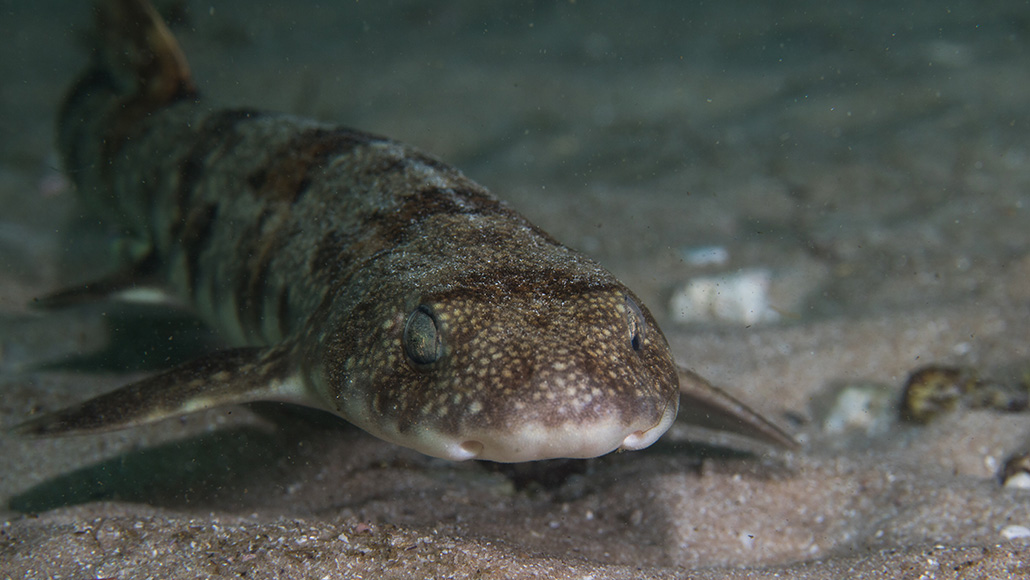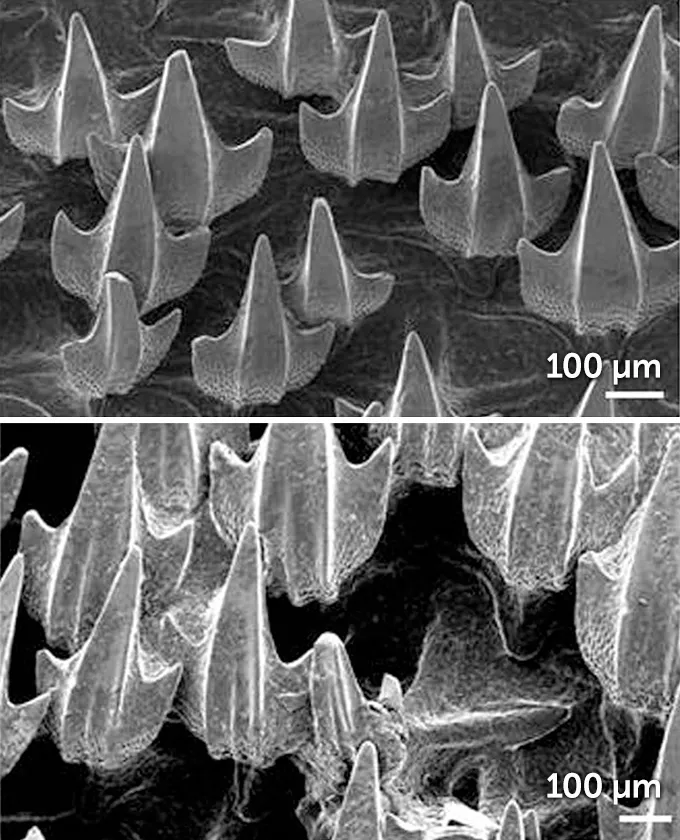
A puffadder shyshark swims just above the ocean floor. These cat sharks, native to the South African coast, can adapt their internal physiology to more acidified waters, a small experiment shows, but their toothlike skin experienced some corrosion.
MadeleinWolf/iStock/Getty Images Plus









